I Went Diving With Sharks and It Made Me Stop Eating Fish
I just feel like I got to know them as people?
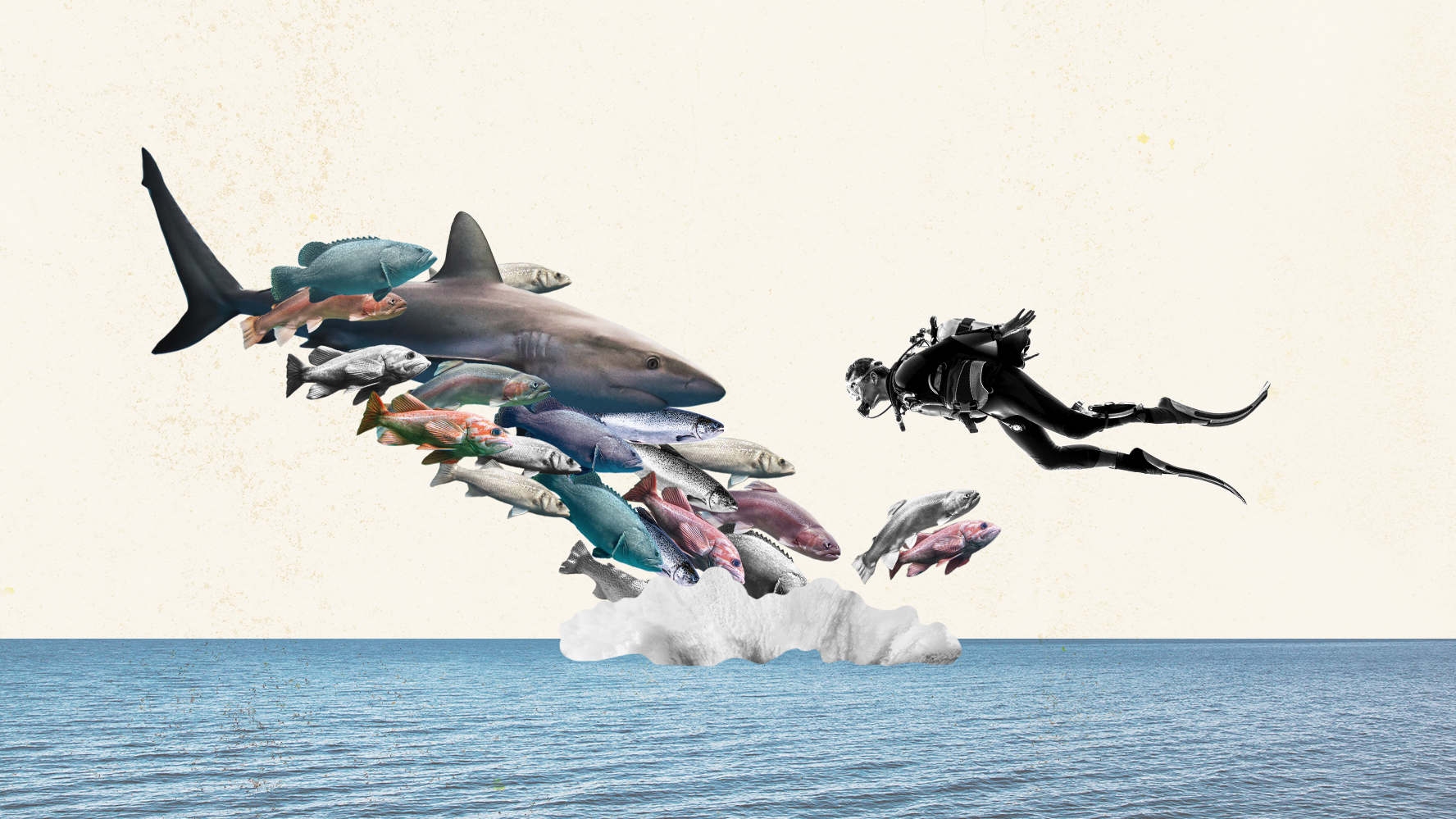
Growing up, Shark Week on Discovery was something of a high holiday for my family. We’re big science people in general and, as Californians, big ocean people too. The week-long programming block around all things sharks has been on since 1988, which means that every summer of my childhood it was on our TVs—even the summer we spent in Hawaii, during which my brother and I would somehow go surfing in the mornings and then tune into visceral shark documentaries in the afternoon.
So I care, is what I’m saying. Or I thought I did, anyway, because I liked sharks as a concept and understood, through Shark Week’s persistent messaging, that despite their evolutionary perfection as killing machines, they do not want to eat humans. Sharks are not only deeply misunderstood but they also require our protection in order to keep oceans healthy. Blah blah, apex predators, Jaws was wrong. Got it. Shark Week!
All of this is to say that when I got an email from Discovery asking whether I wanted to go on a press trip down to the Bahamas to go swimming with sharks—alongside two of their Shark Week hosts, Paul de Gelder and Joe Romeiro, no less—I forwarded it to my editor with a plea to attend. “No pressure, but it’s the only thing I have ever wanted,” I recall telling her. And that’s how I ended up a week later standing on a boat in the pouring rain off of New Providence, Bahamas, at 8 a.m., about to go scuba diving sans cage with a bunch of sharks.
You are significantly more likely to be struck by lightning than eaten by a shark.
During the week between when I found out about the trip and when I would actually be on said boat, it didn’t really occur to me to be nervous. “Oh sorry, I can’t come to your birthday party, I’m going shark diving that weekend,” I told one friend, extremely casually. Maybe it just felt abstract, or maybe it was because I knew that, statistically, getting eaten by a shark is pretty hard: You are significantly more likely to be struck by lightning. Not only that, but I would be with two of the most accomplished shark divers in the world: Joe Romeiro is an award-winning photographer and a director at the Atlantic Shark Institute, who also serves as underwater director of photography for Shark Week. Paul de Gelder, in addition to being a Shark Week host, is a navy diver who became a shark advocate after an attack left him missing part of his right leg and right arm. Paul experienced close to the worst-case shark scenario and ended up dedicating his life to their protection—that’s a hell of a shark endorsement. Plus, if I was diving with him—again, just looking at statistics—what were the chances lightning would strike twice? (Full disclosure: I don’t fully understand statistics.)
Meeting Paul and Joe in real life only made me feel more confident: They both exuded a kind of calm confidence that I found contagious, and they’d be underwater with me the whole shark dive.
On the first day of the trip, the five other press folks and I got scuba certified so that we—alongside an instructor—could dive down the 40 or so feet to the ocean floor to see the sharks up close. It all felt very natural, and I found it fairly easy to stay calm on the practice dive—we even saw a little reef shark and I was totally fine with it. Diving requires so much focus on your breath that it becomes a little meditative. Shark diving the next day would be easy.
I don’t have a good excuse for the times I ordered a tuna melt from the diner, delivery sushi, swordfish at a fancy restaurant.
That night at a big group dinner, Paul mentioned that he didn’t eat fish. He explained that once you dedicate your life to protecting sharks, eating fish seems not only hypocritical but downright unappealing. I sort of knew this, too: It’s estimated that 100 million sharks die each year because of human activity. They’re dying because overfishing causes a lack of food, they’re being killed as bycatch due to commercial fishing practices, and they’re being killed for use in shark fin soup and by sport fishermen hunting them recreationally. Sharks might be perfectly evolved hunters, but humans are far more efficient, which means we’re well on our way to wiping them out. Their extinction would almost certainly lead to the extinction of many other species and, eventually, ecosystem collapse. It’s up to humans to curb those numbers by regulating industries, voting for better conservation laws, and changing our consumption habits.
Stay In The Know
Get exclusive access to fashion and beauty trends, hot-off-the-press celebrity news, and more.
I knew that! And yet...I would still eat fish all the time? I don’t really have a good excuse for those many times I ordered a tuna melt from the diner, delivery sushi, swordfish at a fancy restaurant. I was already a vegetarian—well, a pescatarian, having sworn off land-roaming animals once I really understood what factory farming entailed. But I was aware of what commercial fishing did, too, and still ate fish. I even knew it was just as important to protect fish from a conservation perspective as it was to protect anything else, but I used some mental gymnastics to avoid thinking about it and go right on ordering spicy crunchy salmon rolls.
The night before the dive, I couldn’t sleep. I tossed around, filled with anxious anticipation. We’re a far bigger danger to sharks than they are to us, and some part of me worried that the karmic arc of the universe would kick in the moment I got into the water and I’d be (perhaps deservedly) eaten for venturing into their neck of the planet. I had it coming. Alien versus predator.
But as a result of this nervous spiral, I was groggy when we got on the boat the next morning, at a wharf about 45 minutes from our hotel. The rain was coming down in sheets, and we were told that as long as there wasn’t lightning we would be safe to dive, but it would be dark down there on the ocean floor. Oh good. Dark with sharks.
We set off toward a spot not far from land, and anchored the boat. I was with another member of the press, plus Paul and Joe and another badass photographer named Lauren, plus two dive instructors (one for the other journalist and one for me) and another diver, clad in chainmail, who would be feeding the sharks fish parts out of a metal box. The box was a few feet from me on the ride out, leeching blood onto the deck. I asked Paul for some tips on how not to get eaten. “Don’t act like food,” he said, matter-of-factly. That is, don’t wave around or look distressed. Remember that you’re a predator, too, and make sure they know that you know.
We suited up like we were trained, and jumped into the water with our air tanks, buoyancy compensators, and weights. We swam to a lead line, and then repeatedly equalized our pressure as we followed it to the ocean floor, where we were told to sit on our knees and keep our hands tucked in as the sharks began to surround us.
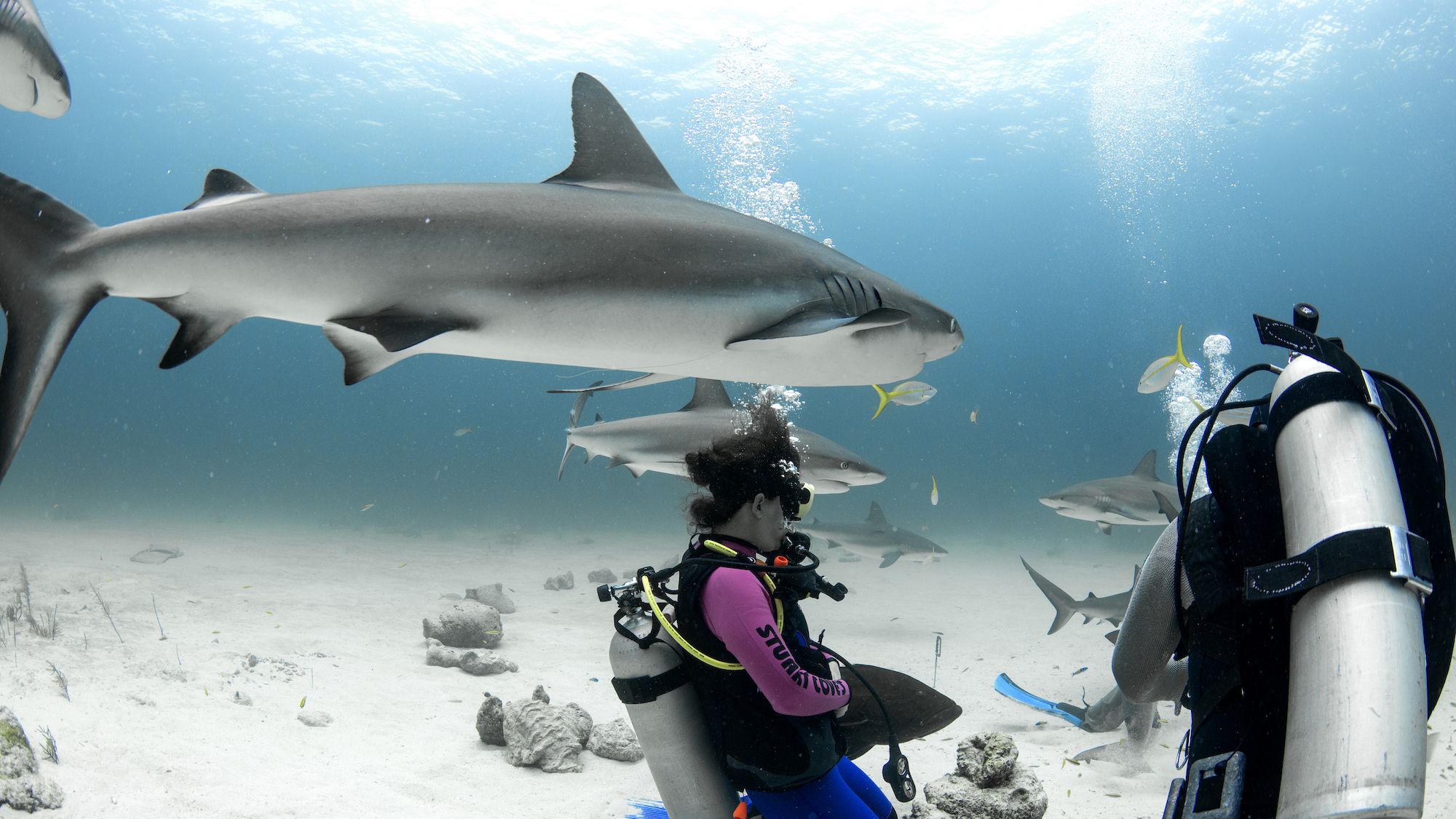
That’s me!
The diver with the metal box began pulling out parts of fish, leading an excitable gaggle of two, then three, then fifteen—I lost count, honestly—reef sharks, some of them pretty huge, around a ring of rocks placed in the sand. They were like puppies, and they’d get so excited when the diver opened the box of fish and dug around in it with his metal tongs that they’d swim up to him and try to get their faces in it, and then back up hoping to get close enough to eat what was on the end. I focused on my breathing, and staying low to the ground. At one point, a big grouper swam next to me to hide from the sharks, and when one would get close it would cuddle closer to me as though I could do anything to protect it.
And the sharks would get close: At one point, an excited reef shark swam between me and the other journalist, smacking me in the face with its tail and knocking my eye mask out of whack. It started to fill with water, but I cleared it, per our training, without any trouble. I again focused on breathing. They were so pretty. In fact, I clearly recall thinking, “Aww, they’re so cute!” When we were told to start surfacing, the sharks were led away from us and we followed the lead line back up, with a necessary safety stop halfway.
My immediate thought upon getting back to the boat was, “I want to go again!” It felt like we’d only been down there for five minutes, though I was informed it had, impossibly, been about 45.
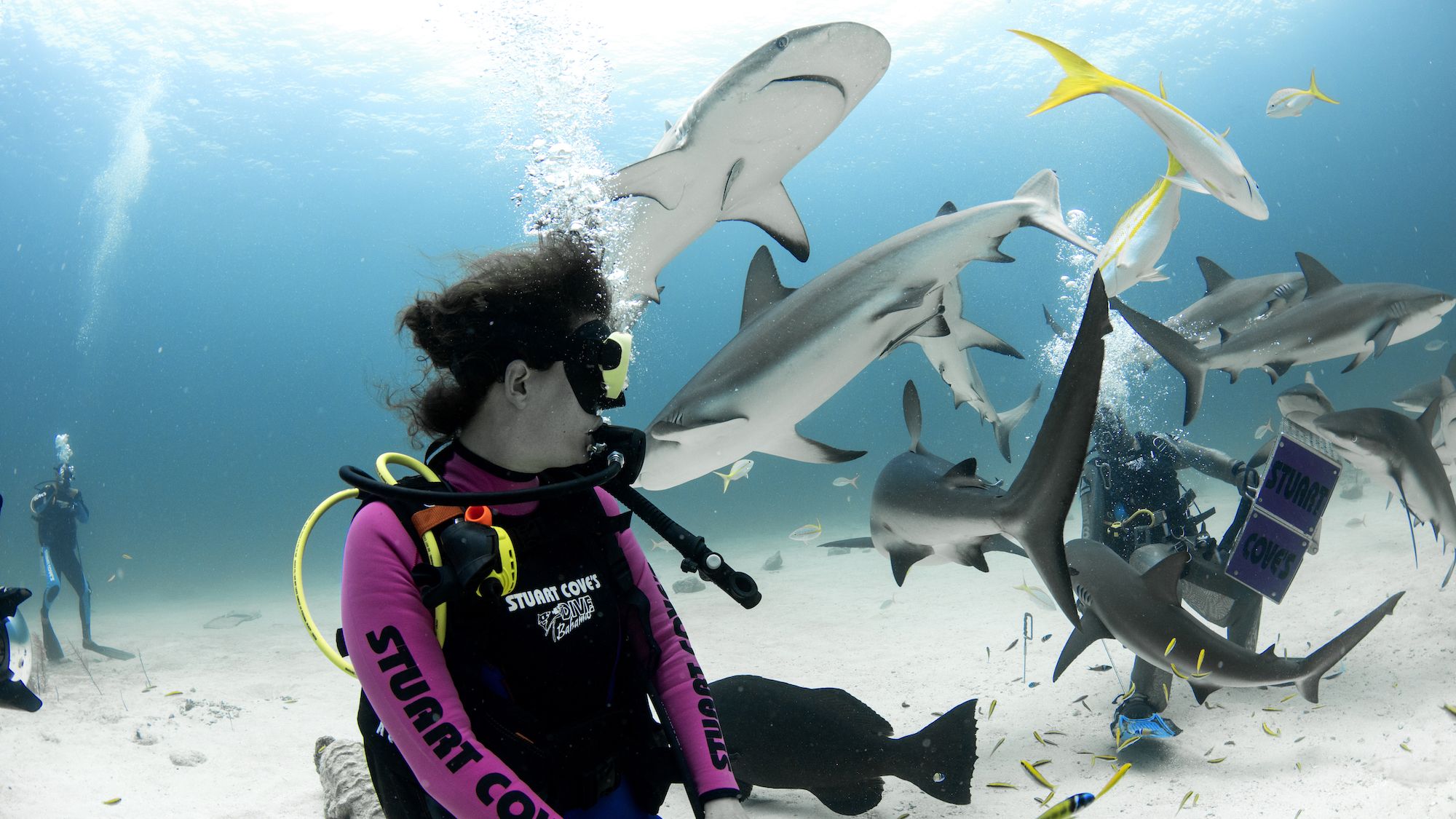
Always comforting to know that the sharks are behind you.
It’s rare for me to know immediately after an experience that it would change my life. But I knew this time. I got to go to a different world for a little while. I saw that sharks have a whole world, with personalities and group dynamics and preferences. I felt like I got to know these fish...as people?
With the dire environmental warnings we’ve been receiving the last few years, sharks suddenly fit into a larger conservation agenda for me, one in which the message of protection and understanding that Shark Week promotes is more potent than ever. The more we get to know things, the harder it is to doom them. It seems idiotically simple, but it took me literally going down to the bottom of the sea to really drive it home.
And that’s why I don’t eat fish anymore.
Shark Week airs on Discovery starting Sunday, July 28. For the full line-up of shows, visit Discovery.com/Shark-Week.
Cady has been a writer and editor in Brooklyn for about 10 years. While her earlier career focused primarily on culture and music, her stories—both those she edited and those she wrote—over the last few years have tended to focus on environmentalism, reproductive rights, and feminist issues. She primarily contributes as a freelancer journalist on these subjects while pursuing her degrees. She held staff positions working in both print and online media, at Rolling Stone and Newsweek, and continued this work as a senior editor, first at Glamour until 2018, and then at Marie Claire magazine. She received her Master's in Environmental Conservation Education at New York University in 2021, and is now working toward her JF and Environmental Law Certificate at Elisabeth Haub School of Law in White Plains.
-
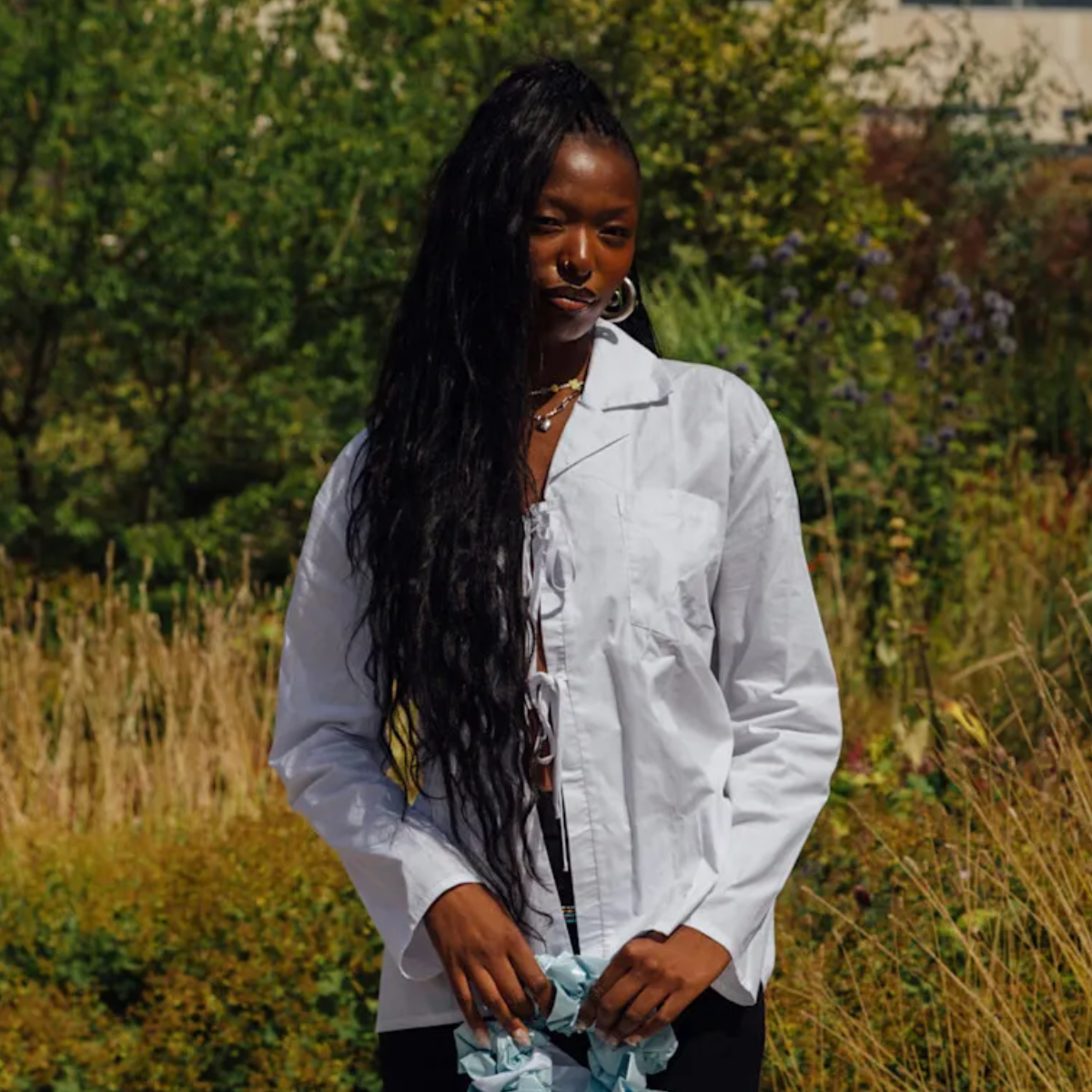 I Used Nordstrom’s Sale Section to Craft 7 Perfect Summer Outfits
I Used Nordstrom’s Sale Section to Craft 7 Perfect Summer OutfitsThese are formulas you can rely on.
By Brooke Knappenberger
-
 Your Syllabus Guide to the 'Weak Hero Class 2' Cast—Meet the Rising K-Drama Stars Playing the Students of Eunjang High
Your Syllabus Guide to the 'Weak Hero Class 2' Cast—Meet the Rising K-Drama Stars Playing the Students of Eunjang HighSo many exciting names join Park Ji-hoon in the second season of the Netflix hit.
By Quinci LeGardye
-
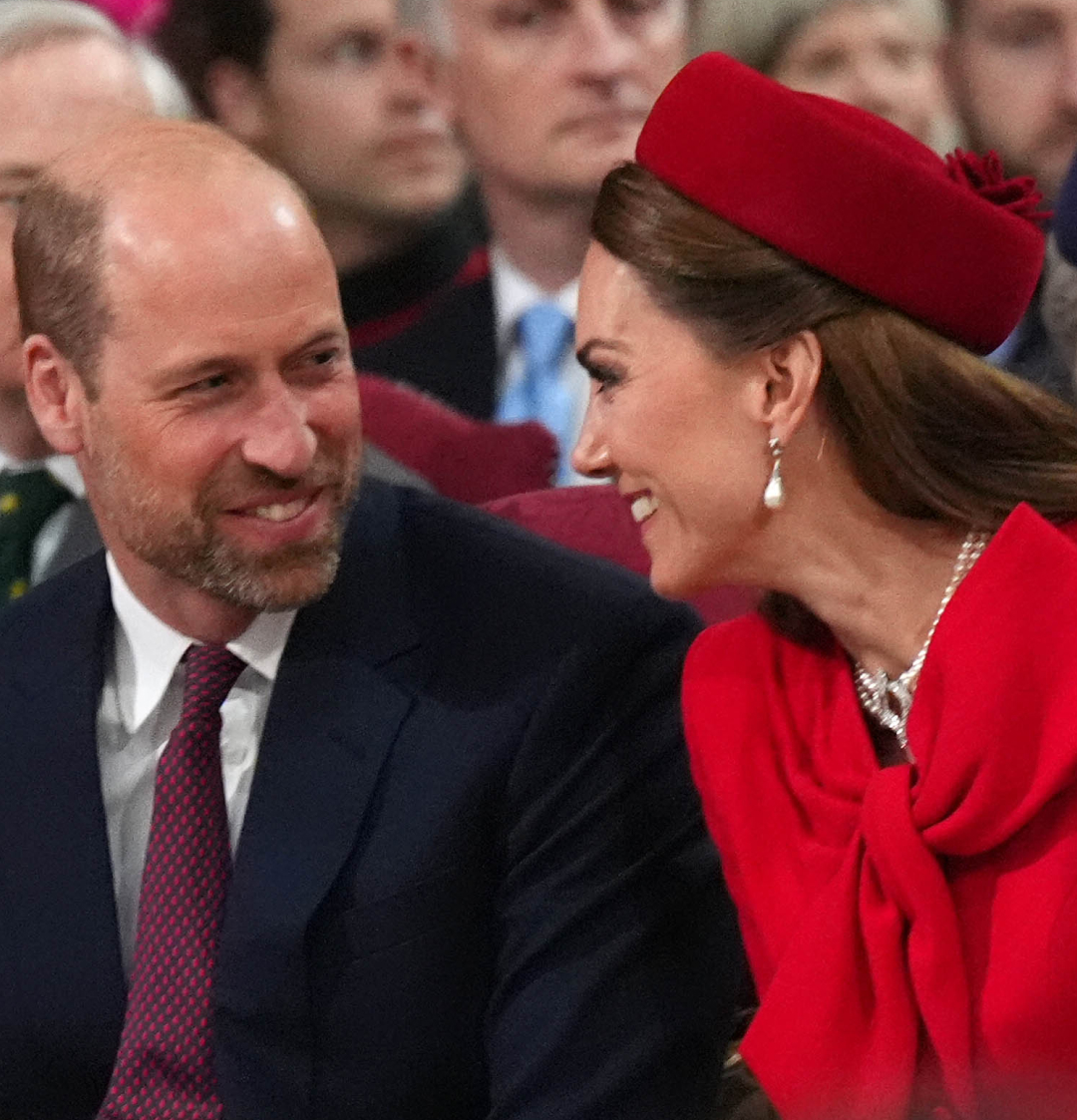 Prince William and Kate Middleton "Continue to Push Boundaries"
Prince William and Kate Middleton "Continue to Push Boundaries""They definitely have a different dynamic compared to other royal couples."
By Kristin Contino
-
 How Victoria Justice Learned to Use Her Voice on the Set of 'Victorious'
How Victoria Justice Learned to Use Her Voice on the Set of 'Victorious'The former Nickelodeon star recalls what it was like to speak up to adults on set as a child.
By Sadie Bell
-
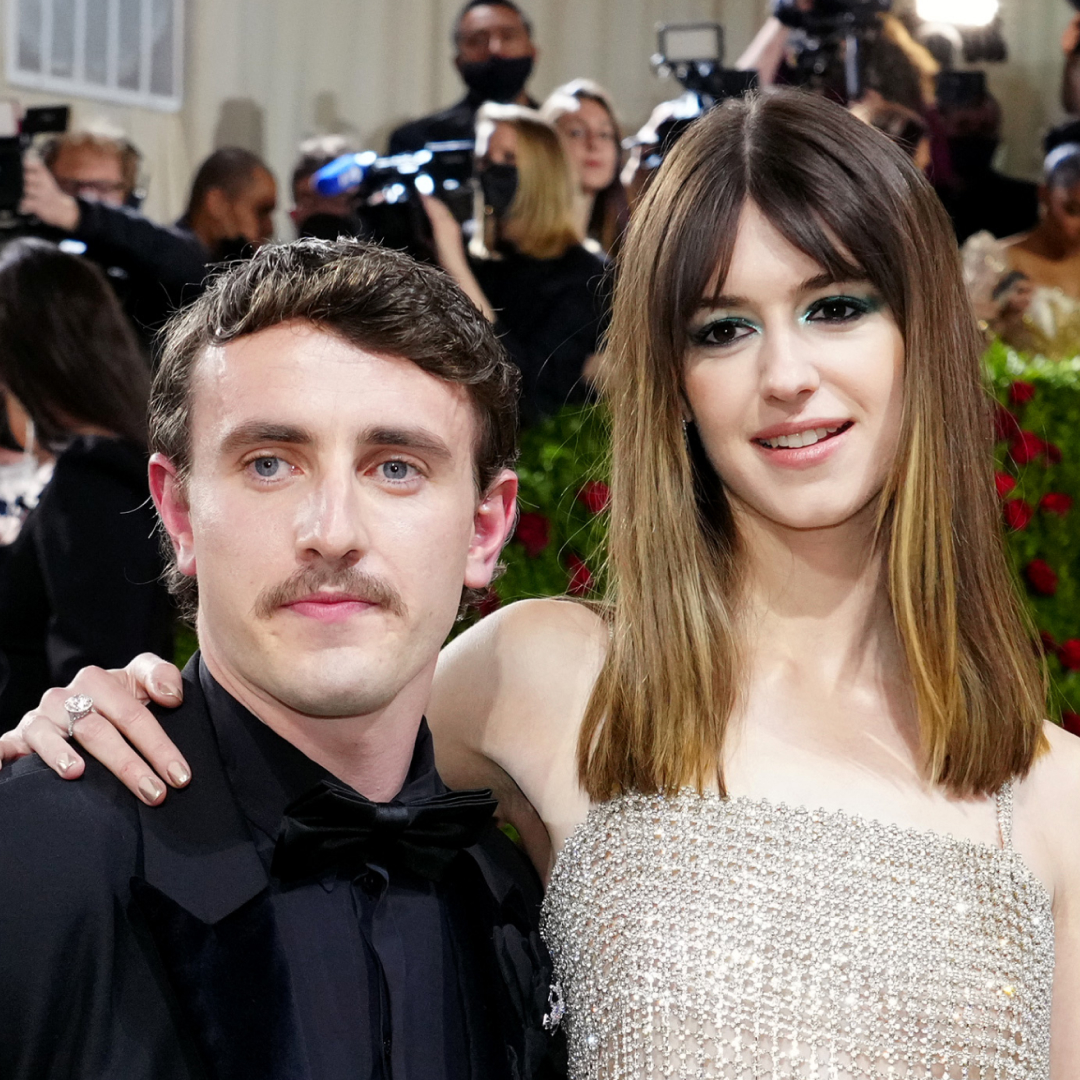 Paul Mescal and Daisy Edgar-Jones Tease an Announcement: "We've Got Some News to Share"
Paul Mescal and Daisy Edgar-Jones Tease an Announcement: "We've Got Some News to Share"The former 'Normal People' costars and IRL best friends seem to have a new project in the works.
By Sadie Bell
-
 The Woman Who Inspired Martha in 'Baby Reindeer' Calls the Series "a Work of Fiction" In a YouTube Interview
The Woman Who Inspired Martha in 'Baby Reindeer' Calls the Series "a Work of Fiction" In a YouTube InterviewA woman has come forward as the alleged inspiration behind Martha in the hit Netflix series.
By Sadie Bell
-
 The Best 'Friends' Episodes of All Time
The Best 'Friends' Episodes of All TimeCould these BE any better?
By Katherine J. Igoe
-
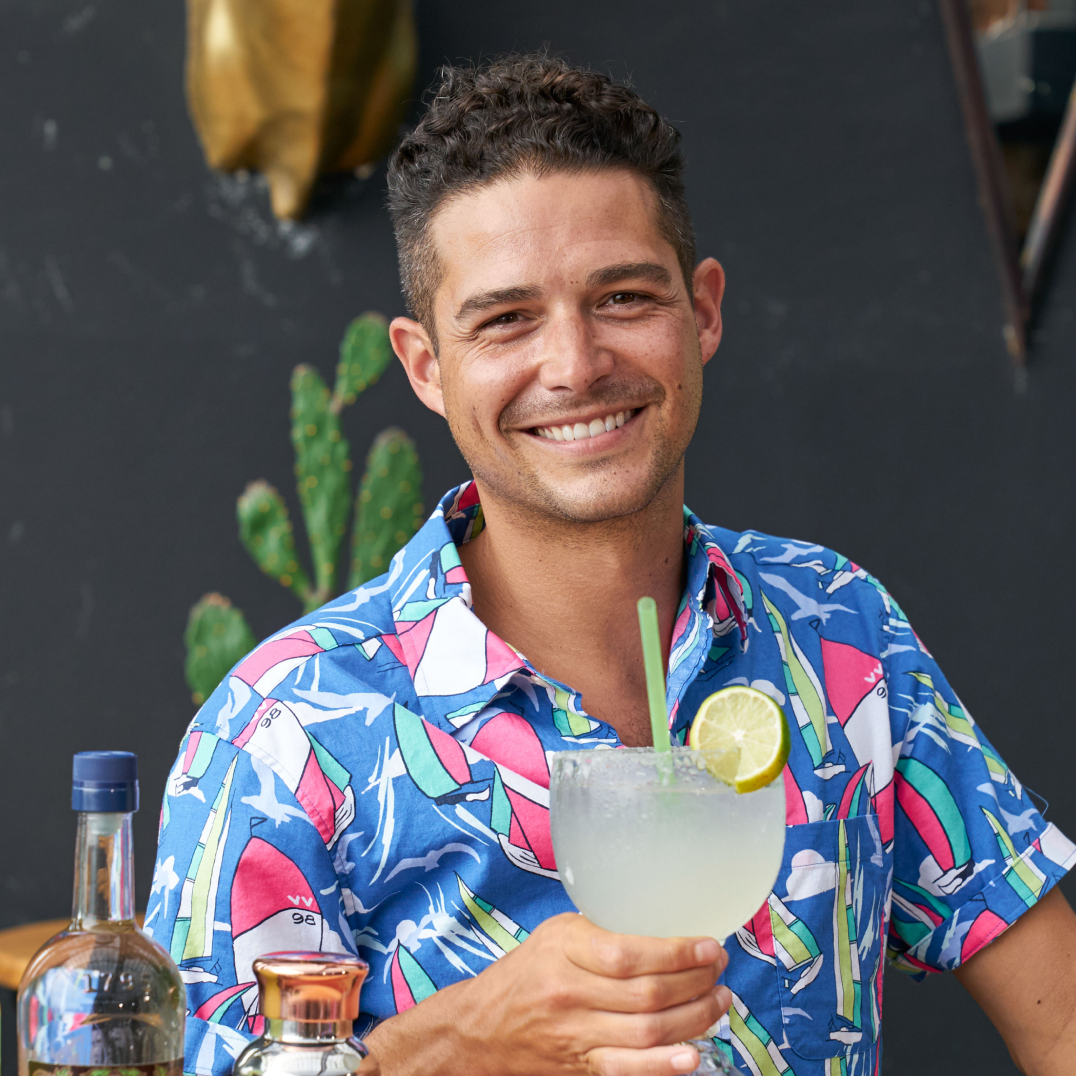 ‘Bachelor in Paradise’ 2023: Everything We Know
‘Bachelor in Paradise’ 2023: Everything We KnowCue up Mike Reno and Ann Wilson’s \201cAlmost Paradise."
By Andrea Park
-
 Who Is Gerry Turner, the ‘Golden Bachelor’?
Who Is Gerry Turner, the ‘Golden Bachelor’?The Indiana native is the first senior citizen to join Bachelor Nation.
By Andrea Park
-
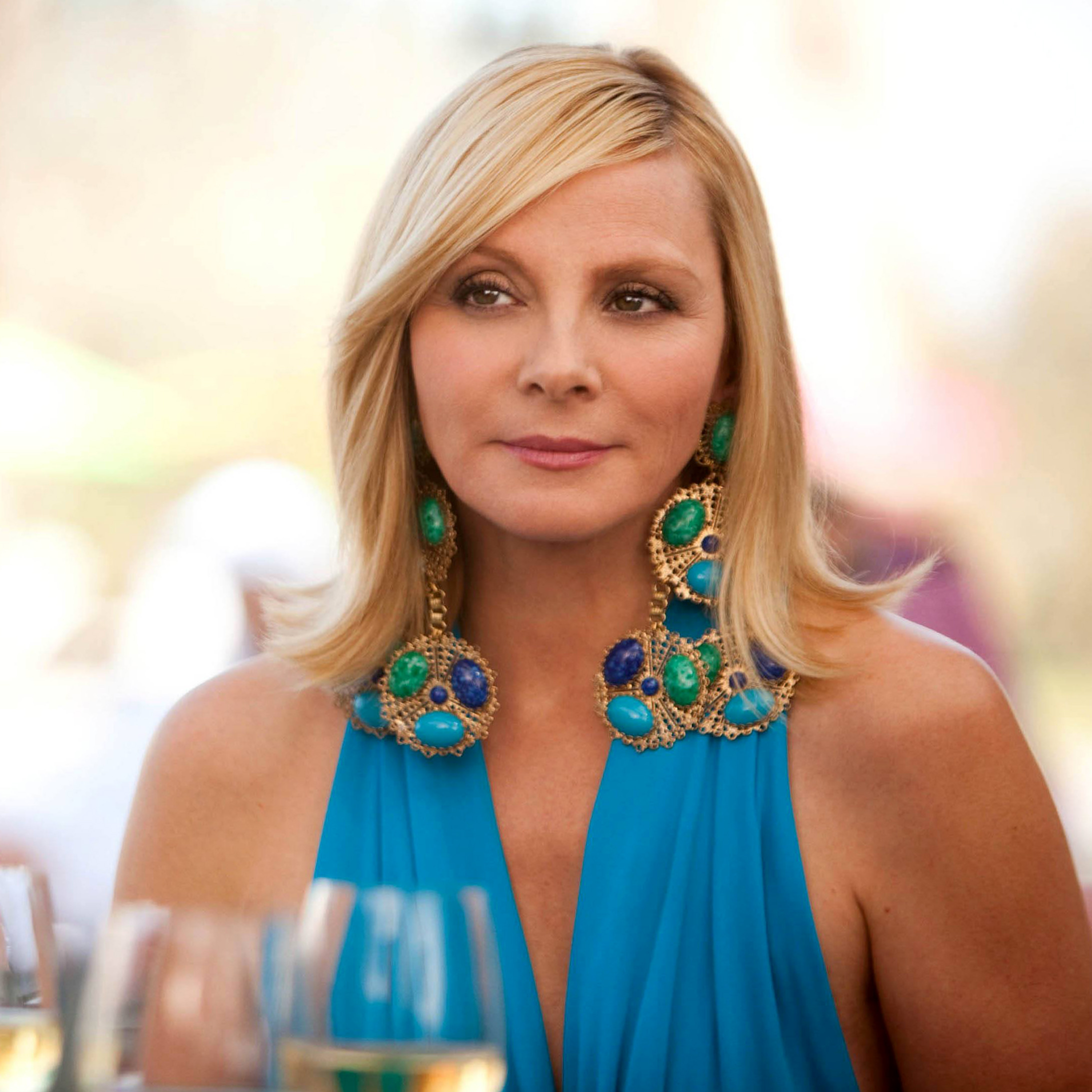 Kim Cattrall Didn't See or Speak to Her Costars When Filming 'And Just Like That' Cameo
Kim Cattrall Didn't See or Speak to Her Costars When Filming 'And Just Like That' CameoThat's some type of commitment.
By Iris Goldsztajn
-
 Selena Gomez Revealed Meryl Streep Is Joining 'Only Murders in the Building' Season 3
Selena Gomez Revealed Meryl Streep Is Joining 'Only Murders in the Building' Season 3Fans are losing it.
By Iris Goldsztajn
